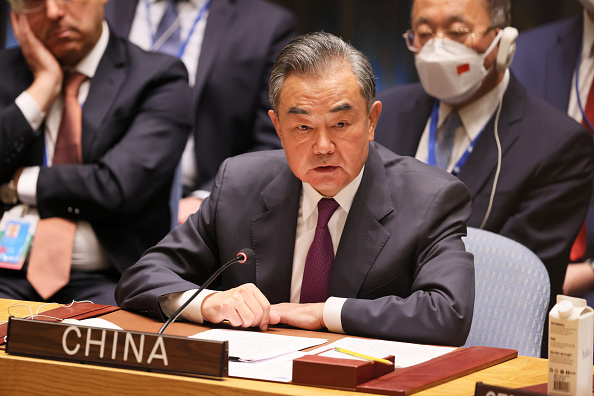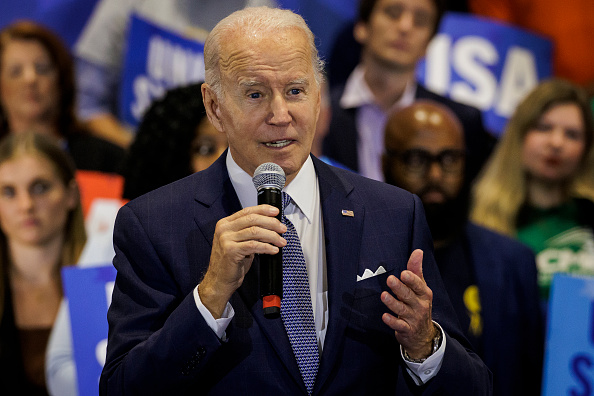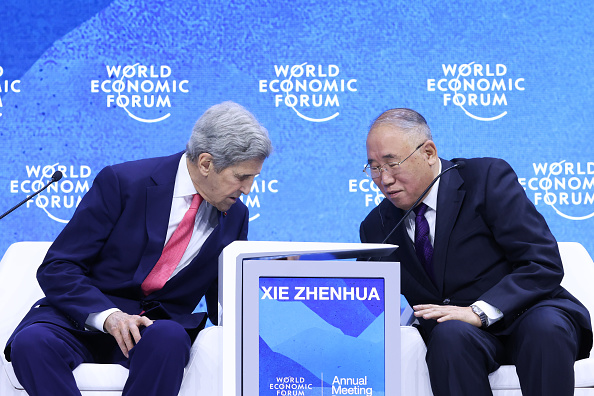
 Global Gridlock
Global GridlockThe 77th session of the United Nations General Assembly is being held in person for the first time since the start of the COVID-19 pandemic. Over 150 world leaders and their representatives gathered in New York against a backdrop of global conflict, increasing climate impacts, and a fractured world order. Among the issues at the forefront of leaders' minds are the war in Ukraine; soaring global food prices; the energy crisis disrupting the global economy; and concerns over devastating climate disruptions.
"Divides are growing deeper. Inequalities are growing wider. Challenges are spreading farther," said Antonio Guterres, Secretary General of the United Nations. "We have a duty to act. And yet we are gridlocked in colossal global dysfunction."
During President Biden's remarks at the United Nations, he addressed the rising cross-strait tensions between China and the United States, saying that the U.S. would "continue to oppose unilateral changes in the status quo by either side."
"Let me be direct about the competition between the United States and China," Biden told the attendees. "We do not seek a Cold War. We do not ask any nation to choose between the United States or any other partner. We seek to uphold peace and stability across the Taiwan Strait. We remain committed to our 'one China' policy, which has helped prevent conflict for four decades."
While President Xi Jinping did not make an appearance this year, Chinese State Councilor and Foreign Minister Wang Yi met with U.S. Secretary of State Antony Blinken for 90 minutes at the gathering. The two diplomats "had a direct and honest exchange on matters related to Taiwan" Friday, a U.S. senior administration official said.
Wang also met with Russian Foreign Minister Sergey Lavrov on the sidelines of UNGA, where Wang reiterated that China will continue to uphold an objective and impartial position on the Russia-Ukraine conflict. He also noted that he hopes all parties will not give up efforts on facilitating talks and insist on resolving security concerns through peace talks.
 Strategic Clarity
Strategic ClarityDuring an interview aired on 60 Minutes this week, President Biden went further than any of his predecessors, claiming that U.S. forces would defend Taiwan against Chinese aggression, in the event of a Chinese invasion, a prospect U.S. officials privately fear is becoming more likely.
The U.S. has had a longstanding approach of "strategic ambiguity" when it comes to the defense of Taiwan, so Biden's comments provoked a fierce debate over whether or not this signals the beginning of a new "strategic clarity" for the United States.
Beijing swiftly condemned Biden's comments and repeated its warning that China reserves the "option to take all necessary measures" to defend its territorial integrity and sovereignty.
"The US remarks seriously violate the one-China principle and the provisions of the three U.S.-China joint communiqués. It is also a serious violation of the important commitment made by the US side not to support Taiwan independence," said China's Ministry of Foreign Affairs spokesperson Mao Ning.
Wang Yi met with Former Secretary of State Henry Kissinger in New York, where Wang decried House Speaker Nancy Pelosi's visit to the Taiwan region, the U.S. Senate's review of The Taiwan Policy Act of 2022, and remarks related to "defending Taiwan." According to an official Chinese readout of the meeting, Wang said these events "have seriously challenged the three China-U.S. joint communiqués, and gravely undermined the political foundation of China-U.S. relations."
Read more in "Strategic Clarity on Taiwan?," by Li Huan, Deputy Director at CICIR's Institute of Hong Kong and Macao Studies, and Distinguished Research Fellow, Xiamen University.
 Backsliding
BackslidingChina's top climate envoy, Xie Zhenhua, has accused some European nations of regressing in the implementation of pressing climate change goals as geopolitical turmoil continues to impact the continent. Xie Zhenhua, who leads China's climate negotiations, told Germany's Special Climate Envoy Jennifer Morgan that global climate governance was currently facing "multiple challenges and uncertainties."
"The climate policies of some European countries have shown a 'backswing,' and it is hoped that this is just a temporary stopgap," he said.
China's foreign ministry has also emphasized that its own green and low-carbon development path remains firm - "in contrast with the European Union." Europe has insisted that the rise in coal consumption to offset gas supply disruptions brought about by the Ukraine conflict is only a temporary measure and won't impact the EU's long-term climate goals.
Meanwhile, climate negotiations between China and the U.S. remain suspended in the wake of House Speaker Nancy Pelosi's visit to Taiwan. But the U.S. top climate envoy, John Kerry, recently said that he believes there's still room for progress on climate talks with China.
"They suspended -- they didn't terminate," Kerry said at a New York Times climate event. "I really hope China will decide sometime in the next days it's worth coming back to this because we owe it to humankind."
Prepared by China-US Focus editorial teams in Hong Kong and New York, this weekly newsletter offers you snap shots of latest trends and developments emerging from China every week, while adding a dose of historical perspective.
- 2022-09-16 Injecting Stability
- 2022-09-09 Cutting Edges
- 2022-09-01 A Win for Global Business
- 2022-08-26 A Heavy Price
- 2022-08-19 Risky Business
- 2022-08-12 Backtracking
- 2022-08-05 Cross-Strait Outrage
- 2022-07-29 Playing with Fire
- 2022-07-22 Nixonian Flexibility
- 2022-07-15 List Diplomacy
- 2022-07-08 Easing Tariffs, Not Tensions
- 2022-07-01 Getting Tough
- 2022-06-24 Tools in the Box
- 2022-06-17 Unprecedented Oversight
- 2022-06-10 Squaring Off
- 2022-06-03 Diplomatic Chills
- 2022-05-27 Competing Visions
- 2022-05-20 Common Ground
- 2022-05-13 Bilateral Interests
- 2022-05-06 Vying for Mutual Benefit
